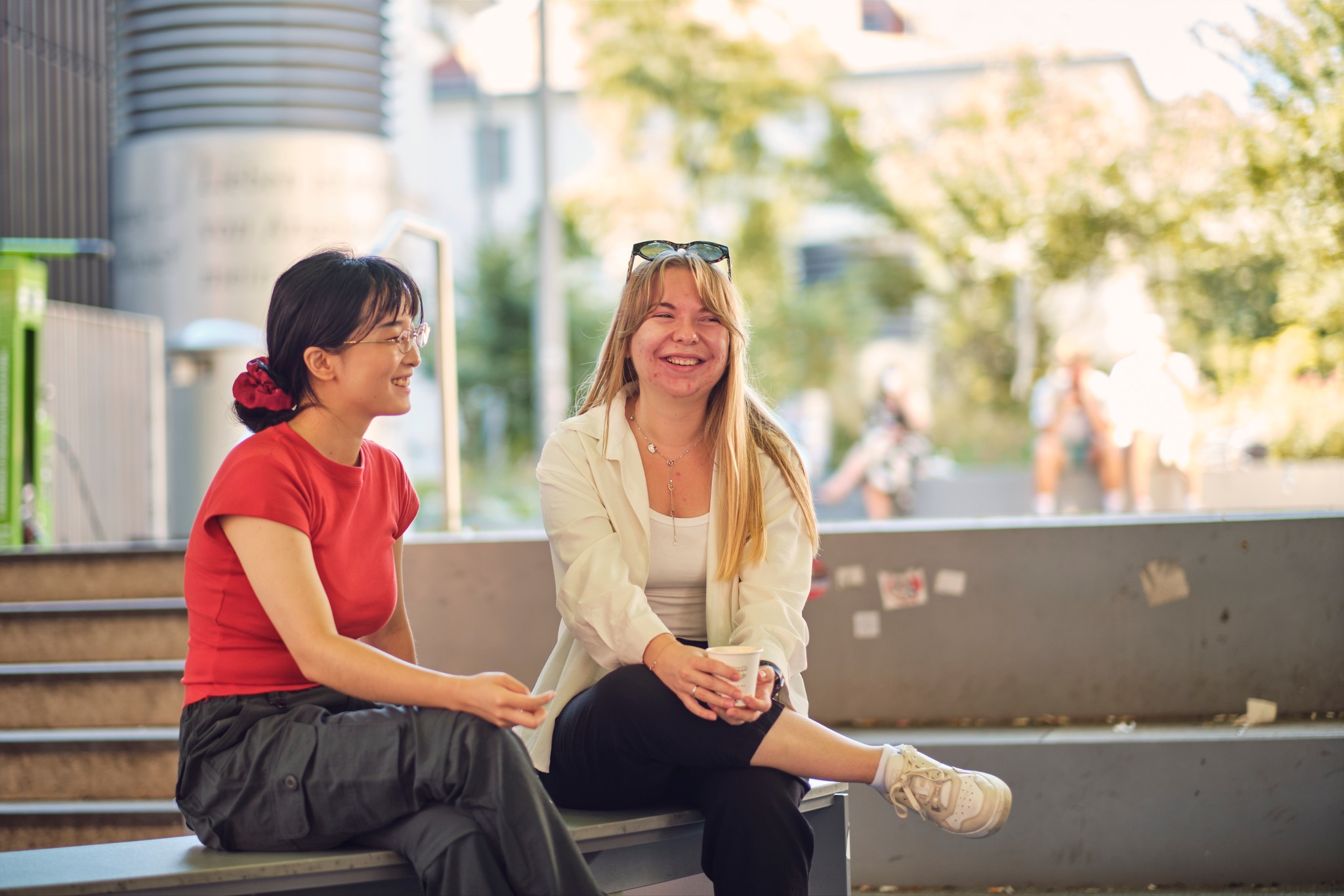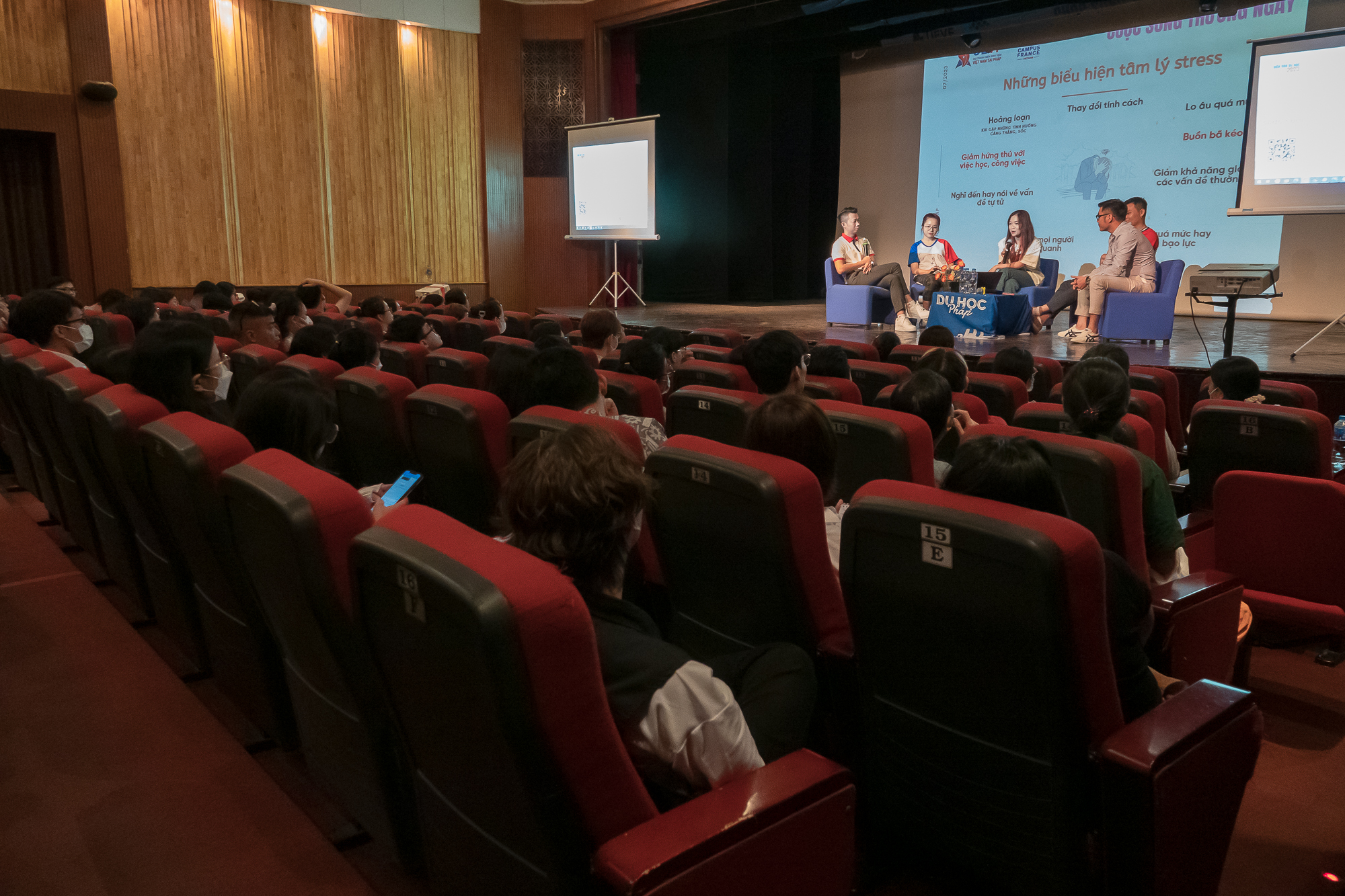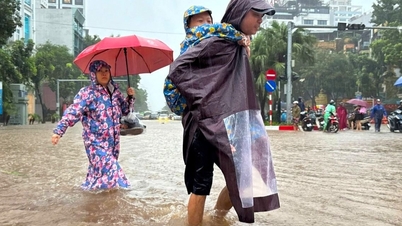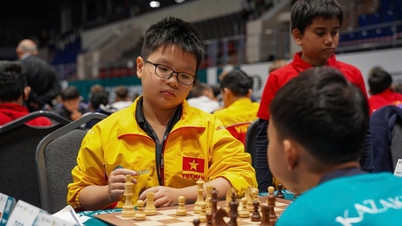
Students at Germany's top university, Ludwig Maximilian University of Munich
PHOTO: LUDWIG-MAXIMILIANS-UNIVERSITÄT MÜNCHEN
The recent report "Overview of English-taught programs in Europe" conducted by the British Council in collaboration with Studyportals shows that more and more non-English speaking countries are offering English-taught programs such as Germany, France, Italy, the Netherlands and Spain, with a total of thousands of programs. This trend contributes to attracting Vietnamese people to study, such as more than 5,800 people in Germany, more than 5,200 in France, more than 1,200 in the Netherlands...
Should be fluent in the local language
Although the program is taught in English, many international students believe that the biggest barrier is still the language. Nguyen Son, an international student in Germany, believes that knowing German is almost mandatory no matter what language is studied. Because, even though they understand and speak English, native speakers only communicate with each other in German, and even their speech is somewhat difficult to understand.
The only way to "survive" and integrate into the community in this case, Son believes, is best to learn the native language on your own. Agreeing, Hoang Yen, a student at Bonn University (Germany), said that although many people advise that you only need a B1 German certificate, the reality shows that you should achieve B2 level to be able to understand and communicate. "But no matter how well you study, when you first come to Germany, you still have language shock," Yen confided.
Sharing the same situation as Son and Yen, Huu Tri, a third-year student at ESADE Business School (Spain), said that he only knew English, so he encountered many difficulties in Spain, a country where "very little English is spoken". That is the reason why he constantly encountered many problems in daily life, from shopping at the supermarket to doing administrative procedures. Similarly, the difficulty in performing daily activities is also what Dang Thao An, an international student in Taiwan, had to go through even though she had a Chinese language certificate after 6 months of studying.
According to An, social circle is one of the top factors that help international students improve their foreign language skills. For example, when she was in Taiwan, the female student often spoke English because her friends were of many ethnicities, so her language skills also increased. A year and a half later, she transferred to study in the US and because she played with a group of Chinese and Taiwanese friends, her Chinese skills also improved significantly, "not struggling like before".

Vietnamese learners listened to the sharing of former students who graduated in France at an event held in July 2023
Open culture but need to be careful
According to Vietnamese students studying abroad, if you choose Europe as your destination, you need to learn about the diversity of ethnicities, religions, beliefs... in the countries, and then adjust your lifestyle accordingly, not just focus on studying. "For example, my roommate is Muslim, so he never eats or touches food made from pork. Therefore, our cooking utensils must be completely separate," Nguyen Son said.
Huu Tri commented that Spanish people are quite cheerful, enthusiastic and like to communicate with strangers. But to understand and get close to people will take more time and effort than in Vietnam, because you need to be diligent in observing, listening and accepting the differences. "Learning and getting used to their lifestyle and culture will make it easier to integrate," Tri affirmed.
Tri also felt pain because he used to have quite close friends, but then "broke down" because of arguments coming from differences in thinking. "There are actions that I think are allowed and I find it reasonable in a close relationship. However, according to their culture, they think it is inappropriate," Tri confided.
Hoang Yen thinks that when studying abroad in a city, you should get to know the people in that city. Yen feels that where she lives, people are quite friendly, greeting and smiling at everyone she meets, but people in big cities "seem a bit cold". "The personality of Germans also depends on the region, maybe because they come to big cities to work, they are busy and don't have much time to chat", the female student expressed her opinion.
How is life in Australia?
Australia is one of the most attractive destinations for Vietnamese students. Nguyen Cat An, currently working in Melbourne (Australia), evaluates the learning and working environment here as multicultural and easy to integrate. But after working for a while, An thinks that developing deep relationships with colleagues is a bit difficult because she does not fully understand their culture from childhood. "Sometimes they joke, I don't find it funny or when I joke, they don't understand," An said.
In general, An advises that before studying abroad, you should determine whether you are suitable for the pace of life in the place you are going to. For example, in Australia there is no nightlife. In the evening, except for the center or entertainment places, people turn off the lights early, around 7 pm the streets are quite deserted and dark, there is nothing to do. This may not be suitable for some people.
Source: https://thanhnien.vn/du-hoc-cac-nuoc-khong-noi-tieng-anh-lam-sao-de-song-sot-185240930183459671.htm


![[Photo] General Secretary To Lam, Secretary of the Central Military Commission attends the 12th Party Congress of the Army](https://vphoto.vietnam.vn/thumb/1200x675/vietnam/resource/IMAGE/2025/9/30/9b63aaa37ddb472ead84e3870a8ae825)
![[Photo] Panorama of the cable-stayed bridge, the final bottleneck of the Ben Luc-Long Thanh expressway](https://vphoto.vietnam.vn/thumb/1200x675/vietnam/resource/IMAGE/2025/9/30/391fdf21025541d6b2f092e49a17243f)

![[Photo] President Luong Cuong receives President of the Cuban National Assembly Esteban Lazo Hernandez](https://vphoto.vietnam.vn/thumb/1200x675/vietnam/resource/IMAGE/2025/9/30/4d38932911c24f6ea1936252bd5427fa)
![[Photo] The 1st Congress of Phu Tho Provincial Party Committee, term 2025-2030](https://vphoto.vietnam.vn/thumb/1200x675/vietnam/resource/IMAGE/2025/9/30/1507da06216649bba8a1ce6251816820)
![[Photo] Solemn opening of the 12th Military Party Congress for the 2025-2030 term](https://vphoto.vietnam.vn/thumb/1200x675/vietnam/resource/IMAGE/2025/9/30/2cd383b3130d41a1a4b5ace0d5eb989d)

































































































Comment (0)